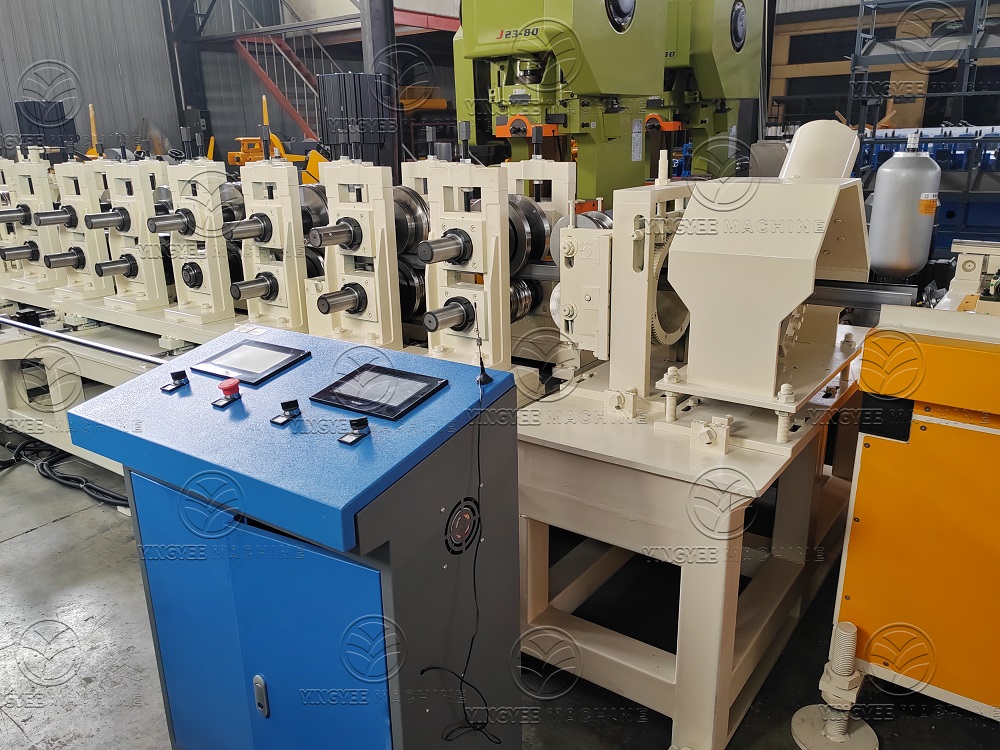
The Evolution and Importance of Metal Sound Barrier Cold Bending Machines
In an era characterized by rapid urban development and increasing environmental concerns, the significance of effective sound barriers has emerged as a critical issue for modern infrastructure. One notable solution to this challenge lies in the innovative use of metal sound barrier cold bending machines, which have revolutionized the production of sound barriers for highways, railways, and industrial areas. This article delves into the technology, advantages, and applications of these machines, highlighting their role in creating sustainable, effective sound mitigation structures.
What are Metal Sound Barriers?
Metal sound barriers serve as physical barriers designed to reduce noise pollution from transportation systems or industrial activities. Typically constructed from materials such as steel or aluminum, these barriers effectively deflect and absorb sound waves, hence significantly mitigating the impact of noise on surrounding environments. The efficacy of sound barriers relies heavily on their design and material properties, making the manufacturing process critical to their performance.
The Functionality of Cold Bending Machines
Cold bending machines have emerged as a crucial technology in the production of metal sound barriers. Unlike traditional bending methods that may involve heat or mechanical strain leading to material fatigue, cold bending processes involve the shaping of metal at room temperature. This technique enhances the integrity of the metal, ensuring that sound barriers maintain their structural strength and shape over time.
Cold bending machines employ a series of rollers and molds to shape metal plates into the desired curvature. This process not only increases precision in dimensions but also minimizes waste, making it an environmentally friendly option. The machines can accommodate various metal thicknesses and profiles, allowing for customization according to specific project requirements.
Advantages of Cold Bending Machines
1. Increased Durability Cold bending maintains the metal’s physical properties, adding to the durability of sound barriers. This ensures that they can withstand various weather conditions and resist corrosion over time.

2. Cost Efficiency The ability to produce tailored shapes and sizes reduces the need for multiple materials and forms, leading to lower production costs. Moreover, the efficiencies gained in manufacturing allow for faster project turnaround times.
3. Precision Engineering Cold bending technology allows for high levels of precision in the curvature and alignment of sound barriers. This ensures that installation fits seamlessly within the required specifications and performs optimally.
4. Sustainability With increasing emphasis on eco-friendly construction practices, the use of cold bending machines promotes sustainability by reducing waste and minimizing the energy consumption associated with traditional metal fabrication techniques.
Applications of Metal Sound Barrier Cold Bending Machines
The utilization of metal sound barrier cold bending machines spans a wide range of applications. In urban areas, they are extensively used for constructing sound walls along highways, minimizing noise pollution for nearby residents. Railway systems, particularly those running through populated regions, also implement these barriers to ensure a quieter transit experience. Additionally, industrial sectors utilize metal sound barriers to comply with environmental regulations while improving the quality of life for workers and nearby communities.
In specialized applications, these machines can be employed to create acoustic screens in arenas, concert halls, and other venues where sound control is paramount. The versatility of cold bending technology allows for creative design solutions that meet both aesthetic and functional needs.
Conclusion
Metal sound barrier cold bending machines symbolize a crucial advancement in the fight against noise pollution. Through their innovative capabilities, these machines not only enhance the durability and precision of sound barriers but also contribute to cost-effective and sustainable construction practices. As urbanization continues to rise, the need for effective sound mitigation solutions will only grow, making the role of cold bending technology ever more significant in shaping a quieter and more livable environment. Embracing this advanced manufacturing technique could lead the way toward smarter, more compassionate urban planning.